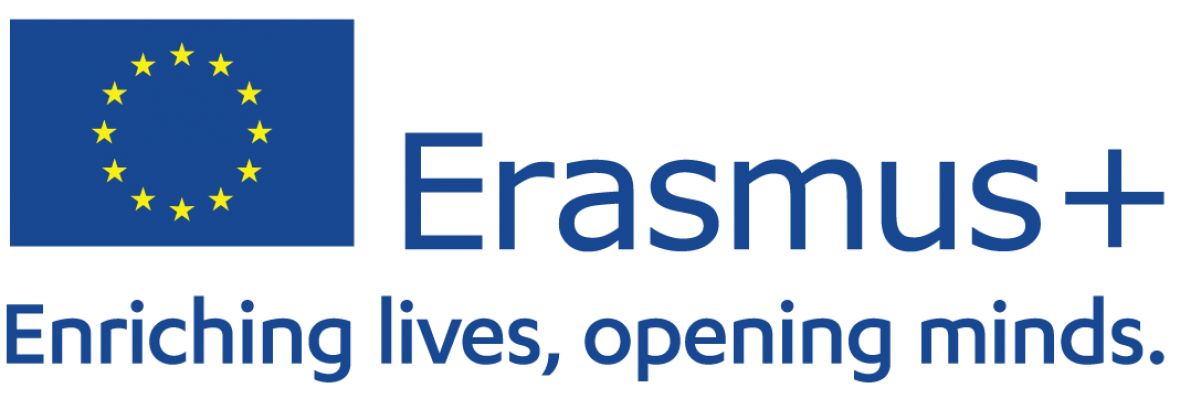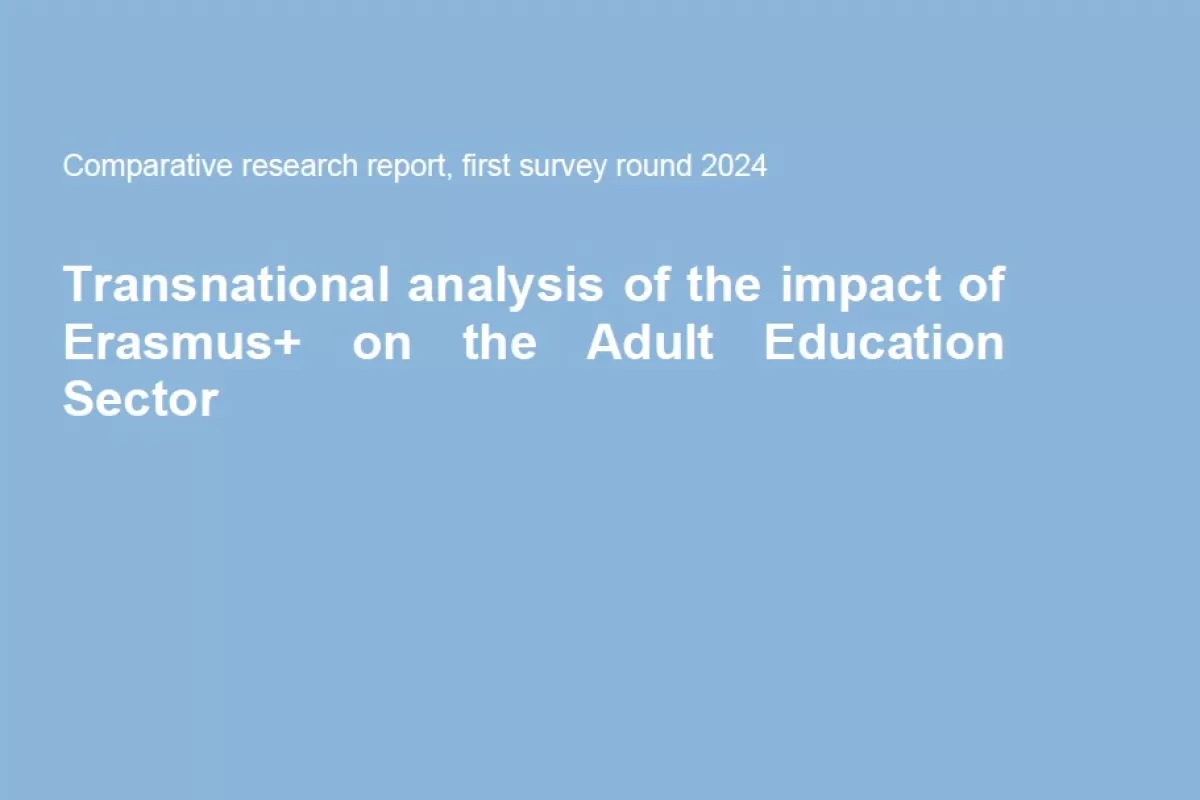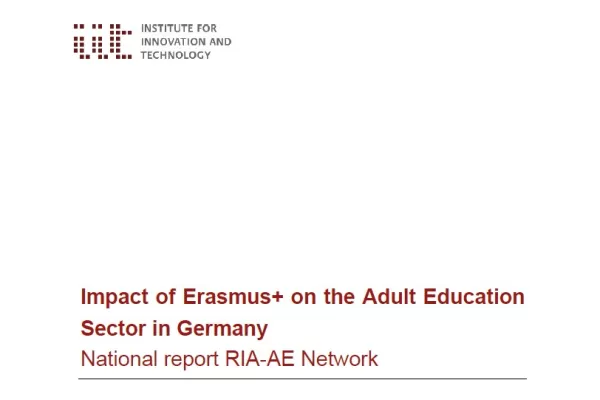Resume
This report summarizes findings from the first survey of the RIA-AE Network, analyzing the Erasmus+ program's impact on adult education across member countries. National monitoring studies, using a unified methodology, inform National Agencies about program implementation and effects within their respective countries. These findings contribute to a transnational study, emphasizing Erasmus+'s broader European impact and offering insights for future program development. This report focuses on transnational outcomes, while individual national findings are detailed in separate country reports.
Conclusions
- Achievements: Erasmus+ reaches a high variety of AE organisations and learners. Beneficiary organisations value Erasmus+ and remain loyal to the programme. Organisational embedding of internationalisation has improved. Most developed outputs are
mainstreamed in regular offer. Projects contribute to the Erasmus+ horizontal priorities. Erasmus+ improves staff member’s professional skills. Participation in Erasmus+ improves the skills of adult learners and their social integration. - Challenges: Not all types of organisations are reached yet. Potential for increasing synergies between KA1 and KA2. Potential to strengthen the impact of the programme at organisation, staff, and learners level. A difficult start for KA1 mobility for adult learners, but a promising future. Limited impact at system level by lack of dialogue between programme and policy level.
Recommendations
- The NAs should regularly collect and analyse data to identify underrepresented groups in the programme and identify their obstacles. Identified obstacles should be responded with targeted support measures.
- The NAs should seek alliances with professional associations and umbrella organisations in the adult education sector, strengthening their role in promoting the programme to its members.
- Organisations need to strengthen their plans on how they can integrate lessons learned and innovative practices from Erasmus+ activities into their broader institutional knowledge to benefit the organisation, staff and learners more widely. The NAs could support this by promoting good practices and the European Commission could consider placing greater emphasis on the related award criteria in their communication and the assessment of applications.
- Organisations need more support from the programme to facilitate KA1 mobilities for adult learners, such as by means of a guideline including an overview of mobility obstacles, tips, good practices to mitigate obstacles, and what the programme can do to help.
Downloads
- Transnational analysis of the impact of Erasmus+ on the Adult Education Sector 3MB / pdf Download
More information?
Looking for more information about this project? Get in touch: RIA-AE@bibb.de.




